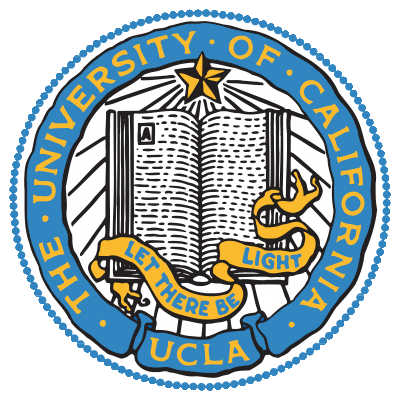Computational Skills and Courses
Computational Skills are very important in many aspects of the PBM graduate program. To help our students both develop and utilize those skills in their research, the campus and our program offer a strong variety of courses. These include:
- Programming Language Related Courses:
Language/Package Relevant UCLA Courses Comments Matlab Mech&AE 20 (M20)
(4 units)Matlab programming - taught every quarter
https://www.registrar.ucla.edu/Academics/Course-Descriptions/Course-Details?SA=MECH%26AE&funsel=3C/C++ PIC 10A, 10B, 10C
(5 units)Beginning, Intermediate and Advanced C/C++
https://www.math.ucla.edu/ugrad/courses/pic/10a https://www.math.ucla.edu/ugrad/courses/pic/10b https://www.math.ucla.edu/ugrad/courses/pic/10cPython PIC 16
(5 units)Requires PIC 10A and one other programming course
https://www.math.ucla.edu/ugrad/courses/pic/16 https://docs.python.org/2/tutorial/index.htmlCUDA IDRE course Typically requires some C++ experience
https://idre.ucla.edu/descriptions (taught occassionally)
- Computationally-Oriented Courses within PBM:
- PB MED 217 - Statistics & Data Analysis in Biomedical Physics
217 Physics and Biology in Medicine Statistics & Data Analysis (2 units)
Recommended requisites: Mathematics 31A, 31B, 32A, 32B, 33A, 33B. Introduction to computer-based statistical concepts, data analysis, and experimental design within biomedical physics research. Standard statistical packages and various statistical computing algorithms on relevant data sets within the radiological sciences. (Fall)
Instructor: Grace Kim, Ph.D - PB MED 207 - Monte Carlo Methods with Application for the Radiological Sciences
207 Monte Carlo Methods with Applications for the Radiological Sciences (4 units)
Prerequiaites: 216, 205, 200A, or consent of instructorIntroduction to the Monte Carlo method with application to radiation transport of charged and uncharged particles. Specific applications in the radiological sciences. (Spring)
Instructor: James Lamb, Ph.D | Youming Yang, Ph.D - PB MED 210 - Computer Vision in Medical Imaging
210 Computer Vision in Medical Imaging (4 units)
Recommended Requisite: Math 155 (Mathematical Imaging) and Math 10A (Introduction to Programming)Study of image segmentation, feature extraction, object recognition, classification, and visualization with biomedical applications. Topics include region-growing, edge detection, mathematical morphology, clustering, neural networks, and volume rendering in lectures, case studies, and programming projects. (Winter)
Instructor: Matt Brown, Ph.D - PB MED M209 - Signal and Image Processing for Biomedicine
M209 Signal and Image Processing for Biomedicine
(Same as Bioengineering M209)
Preparation: basic calculus or linear algebra and undergraduate probability.Lecture, three hours. Mathematics and statistical fundamentals prevalent in biomedical physics studies. Notion and basic descriptions of linear shift-invariance and point spread functions in continuous and discrete time. Discussion of signal subspace methods, correlation and independence, principal component analysis, and independent component analysis. Basic ideas in inverse problems and optimization. Application in medical and signal processing. Development of geometric and informatics intuitions behind mathematics and statistics. Light derivations and MATLAB programming. S/U or letter grading.
- PB MED 286 - Image Registration Techniques
286 Image Registration Techniques (4 unites)
Preparation: strong mathematical background.(Formerly numbered Biomedical Physics 286.) Lecture, four hours. Examination of state-of-art image registration methods that exist today. Mathematical descriptions of each different class of registration methods and two-dimensional/three-dimensional/four-dimensional implementation details. Programming of registration methods in Matlab/C/C++/CUDA/JAVA interfaces so students learn all registration methods currently investigated. Letter grading.
Instructors: Anand Santhanam, Ph.D - PB MED 229 - Advanced Topics in Magnetic Resonance Imaging
229 Advanced Topics in Magnetic Resonance Imaging (4 units)
Enforced Requisite: course M219.Lecture, four hours. Designed for students interested in pursuing research related to development or translation of new magnetic resonance imaging (MRI) technique. Basic tools and understanding of recent MRI developments that have had high impact on field, involve novel pulse sequence design or image reconstructions, and enable imaging of anatomy or function in way that surpasses what is currently possible with any modality. Topics include in-depth sequence simulation, RF pulse design, rapid image acquisition, parallel imaging, compressed sensing, image reconstruction and processing, motion encoding and compensation, chemical-shift imaging and understanding, and understanding/avoiding artifacts. Programming exercises in Matlab to provide hands-on experience. Letter grading.
Instructors: Holden Wu, Ph.D | Kyung Sung, Ph.D
- PB MED 217 - Statistics & Data Analysis in Biomedical Physics





















